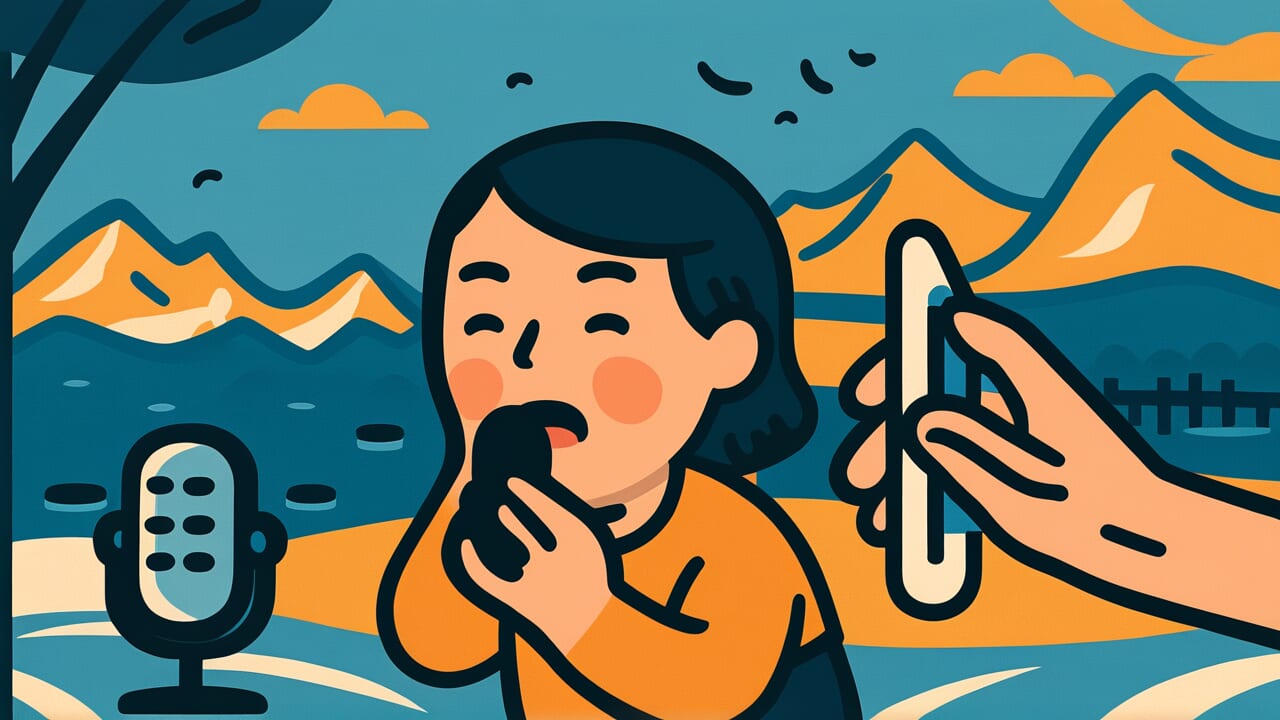How to Read “Those who sing in summer cry in winter”
Natsu utau mono wa fuyu naku
Meaning of “Those who sing in summer cry in winter”
This proverb teaches a life lesson: if you only play around when you’re young, you’ll face trouble later. It means that if you neglect effort during summer, a rich and easy time, and indulge in pleasure, you’ll suffer when harsh winter arrives.
Young people especially have physical strength and feel they have plenty of time. This makes it easy to get swept up in immediate pleasures.
However, this is exactly when you should prepare and work hard for the future. Otherwise, you’ll face an irreversible situation as you get older.
People use this proverb to warn students who only play instead of studying. It also applies to young workers who live for pleasure without developing their skills.
The proverb addresses a life choice between present enjoyment and future stability. It teaches the importance of acting with foresight.
Origin and Etymology
No clear written records explain the origin of this proverb. However, experts point to connections with Aesop’s fable “The Ant and the Grasshopper.”
In this story, the ant works during summer to prepare for winter. Meanwhile, the grasshopper sings and plays, then faces hardship when winter comes. This fable spread worldwide and became known in Japan after the Edo period.
“Those who sing in summer cry in winter” condenses this fable’s lesson into a Japanese proverb. The contrast between “summer” and “winter,” and between “sing” and “cry,” creates a very striking structure.
The choice of the word “sing” is interesting. Rather than simply “play,” using “sing” expresses joy and innocence more vividly.
At the same time, it captures someone singing without worry. This reveals a state of neglecting preparation for the future.
In Japan’s agricultural society, summer work determined winter survival. This natural cycle overlapped with life lessons. This is likely why the proverb took deep root in Japanese hearts.
Usage Examples
- My son lived exactly like “Those who sing in summer cry in winter” during college, and he really struggled with job hunting
- To avoid becoming “Those who sing in summer cry in winter,” young people should build skills little by little
Universal Wisdom
This proverb has been passed down because it contains deep insight into human nature. We humans tend to prioritize immediate pleasure and underestimate future difficulties. This is exactly what psychology calls “present bias.”
When in the summer season of youth, people tend to overestimate their own power. Time feels infinite, and they assume difficulties won’t come to them.
This optimism is necessary for human survival strategy in some ways. However, it also becomes a major pitfall.
Interestingly, this proverb doesn’t simply preach abstinence. “Singing” itself isn’t bad. The problem is neglecting preparation for “winter,” the difficult times ahead.
Life needs enjoyment, but the proverb presents an eternal question. How do you balance that with preparing for the future?
Our ancestors observed many lives and recognized a truth. How you spend your youth greatly influences your later life.
They overlaid this truth onto the changing seasons, a natural phenomenon everyone understands. This is how they left behind such a memorable proverb.
When AI Hears This
Looking at people who sing in summer and cry in winter from a thermodynamics perspective reveals a surprising fact. Human economic activity is also governed by the laws of energy.
According to the second law of thermodynamics, disorder always increases in a closed system. For example, even if you clean a room, it will get messy if left alone. Maintaining order requires constantly injecting energy.
Singing and enjoying yourself in summer is maintaining a high-energy state. You consume food, use time, and use resources. At this moment, you’re rapidly breaking down the “order” you possess.
What’s important here is that entropy increase is irreversible. Once you use energy, it doesn’t naturally return. If you use 100 resources in summer, you’ll certainly approach zero in winter if you do nothing.
In physics, energy conversion efficiency is always less than 100 percent. In fact, human labor only has about 25 percent energy efficiency.
Crying in winter isn’t a moral issue but a consequence of physical laws. If you don’t secure an energy source to maintain order in summer, the entire system inevitably moves toward disorder.
From this perspective, saving and preparation are the only strategies against entropy increase.
Lessons for Today
This proverb teaches us the importance of taking control of our own lives. Today, entertainment and temptations are incomparably more abundant than in the past. They’re also easier to obtain.
With just a smartphone, you can access infinite pleasures. This environment makes it even more important to consciously choose to invest in your future.
What matters isn’t aiming for perfection. It’s the habit of accumulating something for your future self, little by little each day.
This might be studying for qualifications or managing your health. Cherishing relationships is also a worthy investment in the future.
At the same time, this proverb is a message of hope. Winter’s arrival is unavoidable, but how you spend summer can change winter’s harshness.
Your choices today will save your future self. It’s never too late. From this very moment when you’ve realized it, you can start preparing little by little.
While enjoying life, make choices that are kind to your future self.



Comments